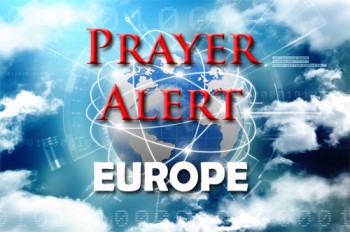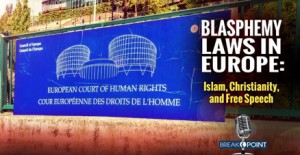Displaying items by tag: Vienna
Iran: negotiations for nuclear deal
Last week we prayed for the nations to work towards ending Iran’s history of making weapons-grade nuclear material in underground facilities while denying their existence. This week the USA has joined talks in Vienna aimed at reviving the Iran nuclear deal which the Trump administration abandoned in 2018. Acting as intermediaries, officials from the UK, France, and Germany are shuttling between two hotels in the Austrian capital. Diplomats from the two other remaining parties, Russia and China, are also attending. President Biden has said he wants to return to the landmark accord. But the six remaining states need to find a way for him to lift the sanctions imposed by his predecessor and for Iran to return to the agreed limits on its nuclear programme. Iran has said it will not meet the USA face to face until that happens.
Austria: terror attack in Vienna
A 20-year-old gunman, Kujtim Fejzulai, previously convicted of trying to travel to Syria to join IS, was killed by police after he had gone on a shooting spree, killing four different people at different locations in Vienna. 23 people including a policeman were wounded; three of them are still in a critical condition. The victims were in an area near the central synagogue, full of people in bars and restaurants. Several arrests were made during searches. The IS group claimed responsibility, but there is no evidence of any accomplice. Fejzulai had been freed from prison in December 2019 after completing a de-radicalisation programme.
Europe - Blasphemy laws
Islam, Christianity, and Free Speech
We think of Europe as secular, progressive, and confidently post-religious. But try criticizing Islam.
Should governments be in the business of protecting people’s feelings? Most Americans, I think would say no. The European Court of Human Rights, however, thinks otherwise. In a historic move last month, the international court affirmed a conviction by a lower court in Vienna against a right-wing speaker who criticized the prophet Muhammad.
Identified only as “E.S.,” the woman, at a seminar in Vienna in 2009, described the founder of Islam as a “pedophile.” According to Islamic tradition, Muhammad was in his fifties when he married his third wife, Aisha, who was six years old at the time. Tradition also says Muhammad waited to consummate their union until the girl was nine.
For describing this relationship in direct though accurate terms, “E.S.” was reported to Austrian authorities, who charged her with “publicly disparaging religious doctrines,” which, believe it or not, is illegal in that country. The Austrian court convicted, describing her statement as “a malicious violation of the spirit of tolerance,” which was “capable of hurting the feelings” of Muslims, and of putting religious peace in Europe at risk.
After a lengthy appeal, the European Court of Human Rights reaffirmed this troubling verdict, ruling that the speaker’s remarks about Muhammad were not only “without factual basis,” but went “beyond the permissible limits of an objective debate,” thereby putting religious peace in jeopardy. So, peace is in jeopardy because Muhammad is critiqued, and not because of how his followers react to the critique?
Set aside for a moment the factual basis of Muhammad’s treatment of his nine-year-old child bride, and the fact that child brides are still shockingly common throughout the Muslim world. The rationale behind these rulings is genuinely scary for another reason.
This idea that speech should be illegal because it threatens “religious peace” is a capitulation to religious violence. Islamic extremists are well known for rioting and even killing whenever they believe someone has “insulted” the prophet Muhammad.
Exhibit A: Asia Bibi, the woman who was just acquitted by the Pakistani supreme court and taken off death row, where she sat for eight years after an alleged slight against the founder of Islam. Bibi now faces the very real possibility of retaliation or assassination by Pakistani radicals and remains trapped in the country.
What the European Court of Human Rights has essentially done is enact a blasphemy law like Pakistan’s, only in the West! Extremists who get violent over perceived insults have been granted veto power over citizens’ free speech. This, just a few years after the Charlie Hebdo massacre in which twelve people—including journalists—were gunned down in Paris over cartoons mocking (ironically!) the violent tendencies of Muhammad and many of his followers.
If guarantees to freedom of speech—which Europe has—do not include the right to say offensive things about religion, such guarantees are not worth the paper they’re written on. If anyone can shut someone else up simply by complaining of hurt feelings, your society is a dictatorship of the easily offended, not free. Caving to the threat of violence will ultimately embolden the violent, not appease them.
Protecting members of a minority religion from hurt feelings is unique to the West. Islamic extremists take advantage of Europe’s indulgence, demanding legal penalties against anyone who criticize Islam. They won’t, of course, ever return the favor. In countries like Saudi Arabia—the birthplace of Islam—a Muslim who converts to Christianity still, to this day, faces the death penalty.
Of course, religious tolerance and free speech arise historically from only one religion, and it isn’t the one founded by Muhammad. Those who think giving up freedom of speech will preserve peace in the long term aren’t insulting our religion. Just our intelligence.


